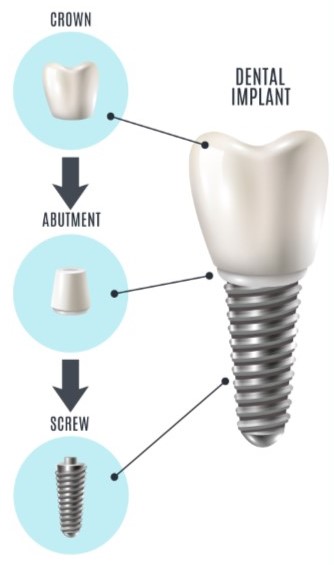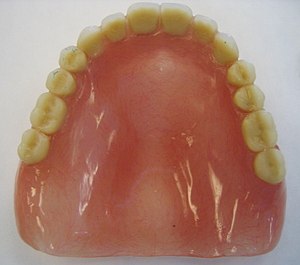As cosmetic dentistry continues to grow in popularity, more and more people are looking to improve the appearance of their teeth through different treatment options. Two popular options for improving the appearance of the teeth are veneers and Lumineers.
Veneers and Lumineers are used to treat almost the same issues in the teeth, there are some major differences between both the cosmetic restorative options. The former is more invasive and permanently bonded to the teeth, while the latter is minimally invasive and a semi-permanent procedure.
What are Veneers?
Veneers are thin shells that are placed over the front surface of the teeth to improve their appearance. They are custom-made to fit the specific shape of the teeth and are made of either porcelain or composite resin. The process of getting veneers involves removing a thin layer of the tooth’s enamel, and then the veneer is bonded to the front of the tooth using dental cement. Veneers can be used to address a variety of cosmetic concerns, such as discoloration, crooked teeth, gaps, and chips.

What are Lumineers?
Lumineers, on the other hand, are a type of veneer, that is thinner and requires less preparation of the teeth. Like traditional veneers, Lumineers are made of porcelain and are custom-made to fit the shape of the teeth. However, Lumineers are thinner than traditional veneers, and in most cases, they do not require the dentist to remove any enamel from the tooth’s surface. Instead, Lumineers are simply placed over the existing teeth, eliminating the need for any preparation of the teeth.

KEY DIFFERENCES BETWEEN VENEERS AND LUMINEERS
1. Stain resistance
With a glazed appearance and durable design, veneers closely resemble teeth’s design with natural enamel. But veneers are extremely non-porous, which makes them highly resistant to staining and extremely suitable for severely stained and damaged teeth. They are also suitable for browned or yellowed (discolored)teeth.
Lumineers aren’t resistant to staining and aren’t as effective at hiding damaged or stained teeth. The composite resin cement that’s used to bond the lumineers to the teeth can stain over time. Lumineers are not recommended for severely damaged or discolored teeth. If you want a highly stain-resistant option, then veneers are the right choice for you.
2. Longevity
On average, veneers last between ten and fifteen years. They have a high success rate of up to twenty years. They can last more than that when good care is taken. As per a study, the average survival rate of veneers stood at 97.5 percent.
Lumineers have a marginally lower lifespan compared to veneers. As per some reliable sources, Lumineers have a lifespan of up to ten years. There are only a few continuing researches on the longevity of lumineers. If you want a long-lasting alternative, veneers are suitable for you.
3. Opacity
Traditional veneers are made from high-quality porcelain and are highly opaque. That makes them extremely effective in hiding tooth discoloration and decay. The high opacity of veneer plays a crucial role in stain resistance.
Being thinner compared to veneers, Lumineers are more translucent, which makes them unsuitable for people with discolored and decayed teeth.
4. Thickness
Veneers are much thicker compared to lumineers. The thickness of an average porcelain veneer is nearly 0.5 mm. Some veneers are thicker than that as the materials such as porcelain also play a huge role in determining the thickness.
Lumineers are thinner and the average thickness is just around 0.2 mm, which is almost as thin as a contact lens.
5. Preparation and application procedure
One of the key differences between veneers and Lumineers is the preparation of the teeth. Veneers require the removal of a thin layer of the tooth’s enamel, while Lumineers do not. The preparation process for veneers may take longer than Lumineers.
6. Reversibility
Since veneers require the removal of a thin layer of enamel from the tooth, it is not possible to reverse this process. It is a permanent process, whereas, Lumineers, on the other hand, can be removed without causing any damage to the underlying teeth.
7. Cost
Lumineers are generally more expensive than veneers, due to their minimal-prep design and the type of porcelain used to create them. Veneers are often the more affordable option, although the price will depend on the specific case and the number of teeth being treated.
COST OF VENEERS AND LUMINEERS
The cost of veneers and Lumineers can vary depending on several factors such as the number of teeth being treated, the material used, the dentist’s experience, and the location of the dental practice. In general, veneers can cost anywhere from $800 to $2,000 per tooth, while Lumineers can cost between $800 to $2,500 per tooth. However, prices can go up if additional dental procedures are necessary or if you live in a higher cost of living area. It is best to consult with a dentist to determine an accurate cost for your individual needs.
Conclusion
Veneers and Lumineers are both excellent options for improving the appearance of your teeth. Which option is best for you depends on your specific treatment goals, budget, and the current condition of your teeth. A dental professional can help you make a decision by performing a dental evaluation and recommending the best treatment option for your needs. Ultimately, both veneers and Lumineers can provide a beautiful, natural-looking smile that can boost your confidence and improve your overall appearance.
FAQs
Here are some frequently asked questions about veneers and Lumineers:
1. What are veneers and Lumineers?
Veneers and Lumineers are thin shells that are placed over teeth to improve their appearance. They are made from porcelain or composite resin and are custom-made to fit each individual tooth.
2. What are the benefits of veneers and Lumineers?
Veneers and Lumineers can be used to cover up a variety of dental imperfections, including chips, cracks, stains, and gaps. They can also help improve the shape and size of teeth, giving patients a more beautiful and confident smile.
3. What is the difference between veneers and Lumineers?
The main difference between veneers and Lumineers is their thickness. Veneers are thicker and require more preparation of the tooth before placement, while Lumineers are thinner and can often be placed without any preparation.
4. How long do veneers and Lumineers last?
With proper care, veneers and Lumineers can last up to 15 years or more.
5. Are veneers and Lumineers painful to get?
The process of getting veneers and Lumineers typically involves little to no pain. Your dentist may recommend local anesthesia to numb the area if necessary.
6. What is the process of getting veneers and Lumineers?
The process of getting veneers and Lumineers typically involves two or three dental visits. During the first visit, your dentist will prepare your teeth and make impressions. The impressions are sent to a laboratory where the veneers or Lumineers are custom-made. Once the veneers or Lumineers are ready, your dentist will bond them to your teeth.
7. Can veneers and Lumineers be removed?
Yes, veneers and Lumineers can be removed, but it is not recommended unless necessary. The process of removing veneers and Lumineers can damage the underlying tooth structure.
8. Do veneers and Lumineers require special care?
While veneers and Lumineers do not require special care, it is important to practice good dental hygiene to keep them looking their best. This includes brushing twice a day, flossing daily, and visiting your dentist for regular check-ups and cleanings. Avoid biting into hard foods and using your teeth as tools to prevent damage to the veneers or Lumineers.


